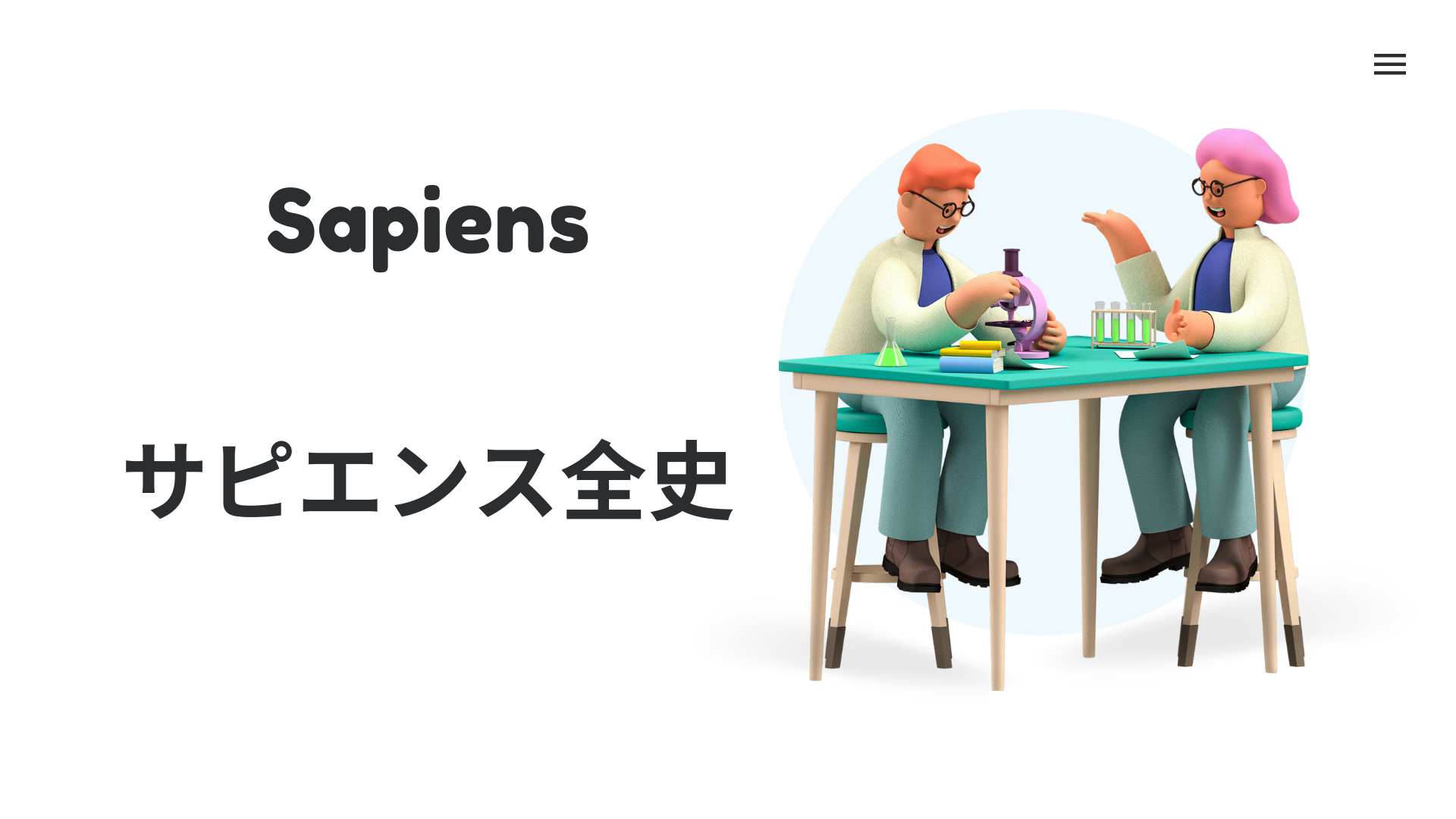
英語でSapiens を読もう📖#10
For English learners!
Hello everyone, how’s your English learning journey going?😃 Reading an English book is sometimes a long journey. You might inadvertently stop if you are alone. But no worries. You are at the right place already. I would like to explore an English book here so that you can try reading the book with me. We are not alone. Let’s enjoy a fun time reading!
The book, which I picked up this time, is called Sapiens, published by Yuval Noah Harari. The Amazon Kindle link below allows you to read up to chapter 3. Today, I am covering chapter 10.
You can check out my recommending strategy of reading as well as a bit of information about this book with a link below.
You can check out my recommending strategy of reading as well as a bit of information about this book with a link below. Okay then, let’s get started📖
日本語学習者のみなさん!
みなさん、こんにちは。あずみです。日本語の勉強はどうですか?やさしい日本語で読むのに飽きてきたあなたに、もうワンランク上のリーディングをお届けしたい、ここはそんなブログです。英語部分で私が書いていることを、日本語で書くならこんな感じというのがテーマです。ぜひ、カジュアルな日本語のライティング表現を体験しながら、同時に興味深い本の内容も楽しんでボキャブラリーの幅を広げてくださいね。😃
英語の勉強、はかどってますか?英語の本を読むのって長い旅路ですよね。うっかり止まって挫折してしまうのはとても簡単です。でもこのブログを読んでいるあなたはだいじょうぶ。そんなあなたを応援するのがこのブログです。このブログで私は本を取り上げ、掘り下げていきたいと思いますので、よかったら私といっしょにこの本にチャレンジしてみてください。
今回読む本は、ユヴァル・ノア・ハラリさんの「サピエンス全史」です。本の内容はアマゾンキンドルのリンクから試し読みで確認してみてください。
また、こちらのリンクから英語の本のオススメの読み方について取り上げています📖ぜひ確認してみてくださいね。さぁ、10章を読みましょう。
Ch.10 The Scent of Money
第10章 最強の征服者、貨幣
Grasp the structure!🦧構成を把握する

To grasp the chapter, you just try to see its hierarchical configuration. I strongly recommend drawing it either physically or virtually.
階層構造を追い、内容を把握します。実際にメモを取りながらするとはかどります。
🚧工事中 🚧
🚧工事中 🚧
🚧工事中 🚧
Common imagination, Not a material reality
Commodity or purely cultural invention
🚧工事中 🚧
Denarii to the modern currencies
Why do people share the belief in gold?
🚧工事中 🚧
🚧工事中 🚧
Summarize the chapter concisely🦧章を一言でまとめる

To summarize, check the hierarchical configuration and make sentences with important points of each.
階層構造の各部分のポイントを確認して、文にしてまとめます。
Sapiens has used gold, coins, or so as a medium of exchange. In accordance with the growth of the economy, simple barter became insufficient. As the improvement in transport infrastructure provoked the rise of cities, the need for intensifying economic activities brought about a creation of inter-subjective reality. It began with shells about 4,000 years ago, and today coinage, banknotes, cigarettes, electronic data, and so forth are used.
It is tightly bound up with political, social, and ideological systems. Coin appeared in the first century, and the entire world became a single economic and political zone nowadays. The world is in danger of becoming one big heartless marketplace. Although it has contributed to the unification of humankind as an economic process, it destroys the communal dams, such as local traditions, intimate relations, and human values.
サピエンスは交換の媒体として金や硬貨等を使用してきました。経済成長に伴い、従来行っていた単純な物々交換では不十分になりました。交通インフラの向上が都市の台頭を引き起こし、経済活動を強化する必要性が、相互主観的な虚構の現実の創造をもたらしました。それは約4000年前に貝殻から始まり、今日では硬貨、紙幣、タバコ、電子データなどが使用されています。
お金は政治的、社会的、イデオロギー的システムと緊密に結びついています。硬貨は1世紀に登場し、今日では全世界が単一の経済的および政治的ゾーンになりました。そして今、世界は一つの大きく冷淡なマーケットと化す危機にあります。貨幣は経済発展の過程では人類の統一に貢献しましたが、それによって地域にある伝統や、人々がもつ親密な関係、そして人間の価値観などの共同体としてのダムが破壊されようとしているのです。
Make questions to discuss🦧ディスカッション用の質問を作ろう

To discuss, make questions. It gives you a great topic to talk about in English.
本について話し合うための質問を作ります。作った質問は英語で話をするときのいい話題になりますよ。
What does it mean? How are the parts connected? what is the reason for people’s actions?
There is more than one possible answer, but the viewer’s opinion is based directly on the text.
ここはどういう意味でしょう?これらの箇所はどう繋がっていますか?この行動にはどんな意味がありますか?
答えは2つ以上考えられますが、質問の答えは本文に直接基づいている必要があります。
My opinion: Since I’ve been watching a Korean TV show, called Vincenzo, that themed corruption and justice. I can see that how money deprives humanity of Sapiens successfully. It is ironic that Sapiens was able to devise something that helps their activities but corrodes their humanity. So, It is really realistic.
私の意見:ヴィンチェンツォという韓国のテレビドラマを見てるんですが、テーマの腐敗と正義の対決なんです。お金がいかに見事にサピエンスから人間性奪っていくかをみることができます。サピエンスが彼らの活動の役に立つものでありながら同時に彼らの人間性を腐敗させる何かを考案することができたのは実に皮肉に思えます。筆者の主張は現実的だと思います。
five questions for discussion🦧ディスカッション用の5つの質問
How does this make me feel? What does it remind me of?
There are many correct answers that are related to one’s experience; they can be found outside of the text/speech.
この箇所はどんな風に感じますか?何を思い出させますか?
個人の経験に関連するたくさんの答えが本文の外で見つけられることが考えられます。
What does it say?
One correct answer is found in the text.
なんと言っていましたか。
答えは一つです。テキスト内でみつけることができます。
What does it mean? How are the parts connected? what is the reason for people’s actions?
There is more than one possible answer, but the viewer’s opinion is based directly on the text.
ここはどういう意味でしょう?これらの箇所はどう繋がっていますか?この行動にはどんな意味がありますか?
答えは2つ以上考えられますが、質問の答えは本文に直接基づいている必要があります。
What is the message beyond this presentation? What are the greater issues or questions this piece deals with?
The presentation is not directly referenced in the question. There are many possible answers found outside of the presentation, but it’s a starting point.
このトピックが伝える、もっと大きなメッセージはなんでしょう?このトピックの先にどんな大きな問題が見えますか?
この質問は、このトピックと直接リンクする必要はありません。この話の外側にたくさんの答えがあるでしょう。でも、このトピックがいいスタートポイントになります。
How effective is the presentation in whole or in part? Why did the speaker/author make these choices and how well do they work?
Many possible answers can be found outside of the presentation but it’s a reference.
この箇所は全体の中で/この部分においてどう効果的な役割を果たしていますか?どうして話者はこのような表現をしましたか、またそれはどのように機能していますか?
たくさんの答えが本文の議論の外でひとつの例としてみちびかれる可能性があります。
Expressions and terms🦧覚えておきたい単語・表現

Pick some terms that you are unfamiliar with from sentences you high-lightened and memorize them because you need them to discuss this chapter!!
読みながらハイライトした特に重要だと思う文の中から、使い慣れていない言葉を選んで覚えましょう。なぜかというと、ディスカッションで意見や考えを言うために必要になるからです。
| term | example sentence |
|---|---|
| fall back on | One can fall back on barter. |
| treasury | We accept the dollar in payment because we trust in God and the US secretary of the treasury. |
| corrode | Money corrodes local traditions, intimate relations, and human values, replacing them with the cold laws of supply and demand. |
| trounce | Brutal warriors, religious fanatics, and concerned citizens have repeatedly managed to trounce calculating merchants. |
| 単語 | 例文 |
|---|---|
| 頼る | 一部の人は物々交換に頼る。 |
| 財務省 | 私たちは神と米国財務省長官を信頼している、ゆえドルでの支払いを受け入れる。 |
| 腐敗する | お金は人々がもつ親密な関係、そして人間の価値観を需要と供給の冷淡な取り決めに置き換えながら、サピエンスの共同体としてのダムを腐敗させている。 |
| 打ち負かす | 残忍な戦士、宗教的狂信者、そして心配性の市民たちは、企みのある商人を何度も打ち負かしてきた。 |
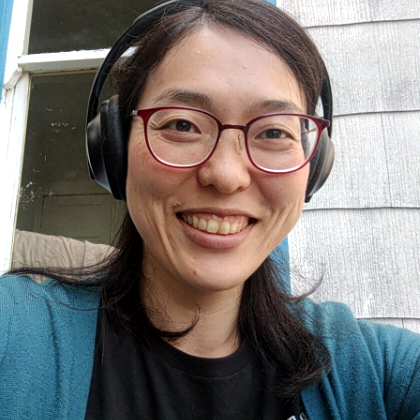
The story of money was interesting, wasn’t it? I was surprised that people not only issued coins for their victory but also emblazoned the opponent’s message. Money is an inter-subjective reality. And you don’t have to believe it. Only you need to believe that other people do believe it. That’s it.
お金の話、面白かったですよね。人々が戦いに勝利した時にコインを発行しただけでなく、戦いをした相手のメッセージを使ったコインも発行していたというのは、すごくびっくりしました。お金は共有された主観的な現実です。そして、お金の存在を信じる必要はありません。誰かそれを信じていると信じることができればそれでいいんです。
The author asserts that money endangers Sapiens’ communal dams. Would it be possible for Sapiens to devise another tool to strengthen our humanity in this high-technology era? Or, human rights is exactly the one functions for it? What do you think?
著者は、お金がサピエンスの人間性を支える根幹を危険にさらすと主張しています。サピエンスがこのハイテク時代に私たちの人間性を強化するためのお金以外のツールを考案することは可能でしょうか?それとも、人権こそがまさにそのために機能しうるものなのでしょうか。どう思いますか?

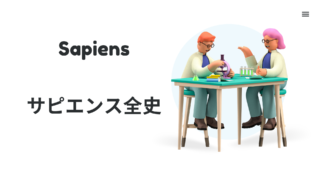

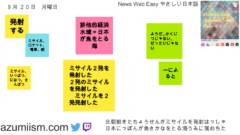
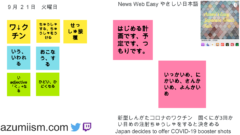
コメント